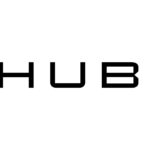The U.S. regulator of corporate auditors criticized PricewaterhouseCoopers on Thursday for not doing enough to ensure that its audits were properly carried out, in a rare public reprimand of a major accounting firm.
The Public Company Accounting Oversight Board faulted PwC for not promptly addressing quality control problems detected by the board in inspections of some 2007 and 2008 PwC audits, such as subpar supervision and review of audit work.
Only once before has the PCAOB made public a report criticizing quality controls at a Big Four audit firm. In October 2011, it faulted Deloitte & Touche LLP, a PwC rival, for not doing enough to promptly improve audit quality systems.
In a statement attached to the PCAOB report, PwC said it had taken steps to respond to the concerns, including improving audit tools and training. A spokesperson for PwC declined further comment.
The rebuke came as corporate America showed increasing strength recovering from a credit crisis that rocked the economy, but amid lingering questions about the role of auditors that review corporations’ books annually.
More than a decade after the PCAOB emerged from the regulatory backlash from the Enron Corp accounting scandal, the regulator and the firms it polices remain at the center of a lively debate about how to improve audits.
“You’re finally seeing the PCAOB showing some teeth and issuing meaningful reports,” said Anthony Catanach, accounting professor at Villanova University, adding that despite, PCAOB criticisms, audit firms keep getting work.
“There’s an issue with what the enforcement is going to be,” he said.
Controls & ‘CAKE’
Quality controls such as training, supervision and staffing are critical at large audit firms, which often use thousands of inexperienced college graduates to carry out routine tasks.
The PCAOB report gave extensive details on PwC’s oversight of its auditors. Based on deficiencies found by inspectors, the PCAOB said, it appeared that some audit personnel were not adequately supervised and that some partners’ workloads were not being monitored during busy season.
In parts of the audit process, auditors did not challenge the statements of corporate managers and sometimes took them at their word when questions arose, the PCAOB said.
The report said audit teams relied too much on “CAKE,” which is PwC shorthand for “cumulative audit knowledge and experience” from audits done in the past, as opposed to new evidence.
In complex accounting areas, such as fair value, auditors failed to question management assertions, even though they did not match up with historical results or other evidence in audit documents, the PCAOB said.
The PCAOB also criticized PwC for not showing enough “professional skepticism” toward possible management bias.
Professional skepticism refers to auditors’ obligation to look skeptically at company books, a role meant to provide an independent check against misleading financial statements. This has been the subject of frequent criticisms by the PCAOB in its inspections and comments on the audit industry’s performance.
Thursday’s report is not a disciplinary sanction and might not necessarily lead to discipline, the PCAOB said. However, the PCAOB can discipline firms and individuals for failure to comply with quality control standards, the board added.
Sanctions against auditors can include fines, suspensions and bars against auditing public companies.
Pwc Defends Controls
Even without further discipline, Thursday’s report is a black eye for PwC, which touts its audit quality worldwide.
Deloitte, PwC, KPMG and Ernst & Young are the four largest corporate auditing firms, dominating their market worldwide.
Congress formed the PCAOB in 2002 to regulate auditors after book-cooking scandals at large corporations, including Enron. Previously, the audit industry was self-regulated.
The board inspects major audit firms every year and reports on problems found in individual audits. Criticism of overall quality procedures remains private if the firm corrects the problems within 12 months of an inspection report.
Disciplinary actions are also kept private until an audit firm has exhausted all appeals. The prohibition against making disciplinary actions public was mandated by the 2002 Sarbanes-Oxley Act, which created the PCAOB.
When Sarbanes-Oxley was drafted, lawmakers feared that allowing the publicizing of audit quality problems before a firm had a chance to fix them could undermine public confidence and cause an exodus of clients. This fear stemmed from the Enron-related collapse of auditing firm Arthur Andersen, which left the audit industry with even fewer competitors than before.
In an internal memo obtained by Reuters, PwC said it had the right to appeal the PCAOB’s conclusions to the U.S. Securities and Exchange Commission, but had decided not to do so. It said it did not want to spend time on findings “that we believe we have addressed or are currently addressing.”
The memo, dated March 7 and signed by PwC Chairman Robert Moritz, was addressed to partners and defended the firm’s efforts to improve quality controls.
The PCAOB’s criticisms “relate to some of the most complex, broad, judgmental and evolving areas of auditing,” the memo said.




















 Chubb CEO Greenberg on Personal Insurance Affordability and Data Centers
Chubb CEO Greenberg on Personal Insurance Affordability and Data Centers  20,000 AI Users at Travelers Prep for Innovation 2.0; Claims Call Centers Cut
20,000 AI Users at Travelers Prep for Innovation 2.0; Claims Call Centers Cut  AIG, Chubb Can’t Use ‘Bump-Up’ Provision in D&O Policy to Avoid Coverage
AIG, Chubb Can’t Use ‘Bump-Up’ Provision in D&O Policy to Avoid Coverage  Berkshire-owned Utility Urges Oregon Appeals Court to Limit Wildfire Damages
Berkshire-owned Utility Urges Oregon Appeals Court to Limit Wildfire Damages 